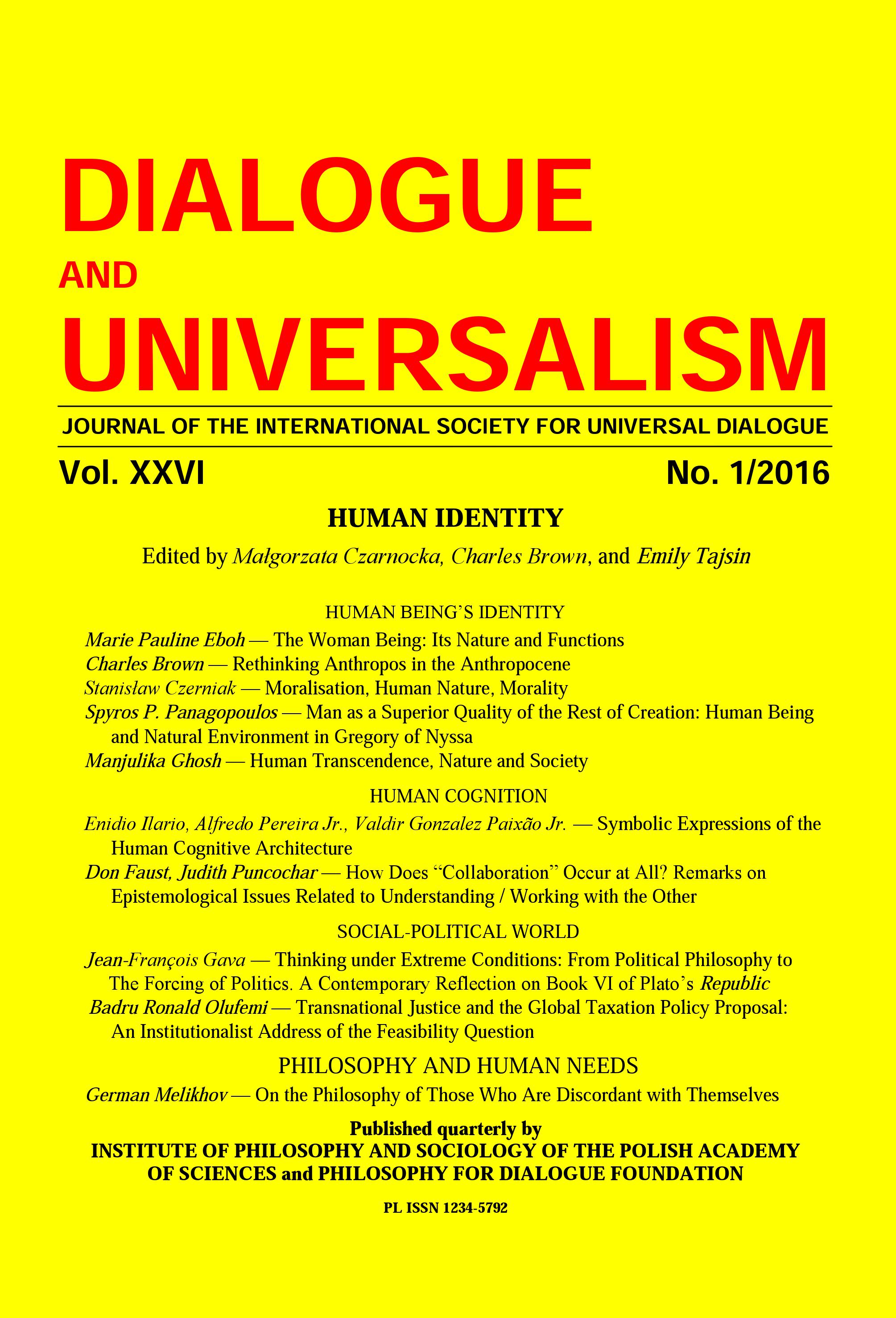HOW DOES “COLLABORATION” OCCUR AT ALL?
REMARKS ON EPISTEMOLOGICAL ISSUES RELATED TO
UNDERSTANDING / WORKING WITH THE OTHER
HOW DOES “COLLABORATION” OCCUR AT ALL?
REMARKS ON EPISTEMOLOGICAL ISSUES RELATED TO
UNDERSTANDING / WORKING WITH THE OTHER
Author(s): Don Faust, Judith PuncocharSubject(s): Philosophy
Published by: Instytut Filozofii i Socjologii Polskiej Akademii Nauk
Keywords: cognition and perception; collaboration; communication; dialogue; epistemology; logic and foundations of mathematics; mathematical logic; overconfidence
Summary/Abstract: Collaboration must be based on careful representation and communication of each stakeholder’s knowledge. Using a foundational logical and epistemological point of view, we explore how such representation and communication can be accomplished. We tenta-tively conclude, based on careful delineation of logical technicalities necessarily involved in such representation and communication, that currently a complete representation is not possible. This inference, if correct, is discouraging. However, we suggest two actions. First, we can strive to make stakeholders more aware of the incompleteness of knowledge representations. Second, moderating one’s certainty of “Truth” should increase each stakeholder’s humility, thereby promoting the efficacy of collaborations.
Journal: Dialogue and Universalism
- Issue Year: 2016
- Issue No: 1
- Page Range: 137-144
- Page Count: 8
- Language: English
- Content File-PDF

